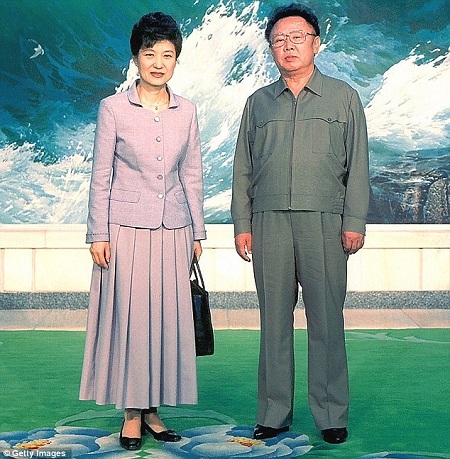There are few world relationships trickier than the politics between North Korea and South Korea.![]()
But two flavors of news from North Korea have shaped the upcoming South Korean legislative elections:
- North Korea has announced its intention to launch a satellite and long-range rocket into orbit between April 12 and 16 in honor of Kim Il-Sung.
- North Korea is not being shy about its hope that President Lee Myung-bak’s Saenuri Party (새누리당 or the ‘Saenuri-dang’) loses next Wednesday’s legislative elections.
It is difficult to know just what impact the North Korean issue will have on the election, the main focus of which has been the South Korean economy. Lee has reversed the “sunshine policy” of his predecessors that marked the 2000s, where South Korea pushed comparatively more aid to North Korea — instead, he has taken a harder-line stance against Pyongyang. At the same time, Cho Myung-chul, who defected from the North in 1994, is running on the Saenuri Party ticket to become the first defector to stand in the South Korean parliament.
At the same time, Pyongyang is increasing that rhetoric in none too subtle ways against Lee and the current leader of the Saenuri Party, Park Geun-hye. Pyongyang’s Korean Council for Reconciliation today called Park a “dictator’s daughter” (Park is the daughter of former South Korean president Park Chung-hee, who was South Korea’s leader from 1961 to 1979 whose commitment to economic progress was somewhat greater than his commitment to political liberalization):
“A dictator’s bloodline cannot change away from its viciousness…all walks of life in the South must not be deceived by Park and her clique, and must judge the conservative traitors through the elections,” it said.
“We, along with all the Korean people, will never allow the ghosts of the dictatorship to make a comeback,” it said in a statement carried by the official news agency.
The North Korean government newspaper christened Park as a “Judas” with an “unlimited greed for power”.
Park met North Korea’s leader, the late Kim Jong-il, in Pyongyang in 2002 — they are pictured above in, um, happier times. Kim died in December 2011 and his son, Kim Jong-un, has succeeded him, although the extent of Kim Jong-un’s power and the direction he’ll try to take North Korea remains murky.
I’m not sure how that is going to play with South Korean voters — most likely, they will probably just ignore the North’s clumsy attempts at political interference, just as they seem to ignore South Korean politicians who try to gain political advantage from any perceived threat from the North:
“Voters see any North Korean action more as Pyongyang strengthening its rhetoric to escalate tensions rather than a real national security threat or an actual move to attack the South,” said Lee Taek Soo, president of Seoul-based polling service Realmeter. “Parties have also abused the threat of North Korea in past elections, so voters have learned their lesson.”
The latest poll from Realmeter, conducted from March 27 to 30, shows the Saenuri Party with a slight uptick in support at 39.8%. The chief opposition party, the Democratic United Party (민주통합당, or the ‘Minju Tonghap-dang’) garners 30.5% and its coalition partner, the Unified Progressive Party wins 8.1%.
